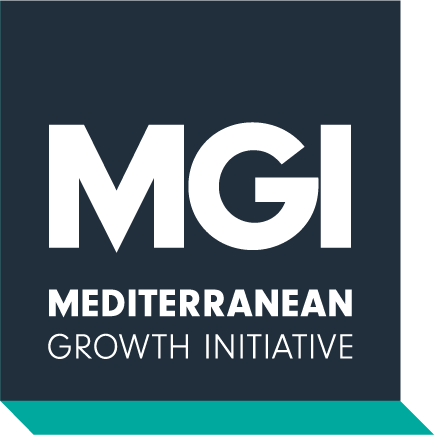MGI Weekly round-up | 20 October 2017
Stories MGI has been tracking this week:
- Israel-Cyprus-Greece power interconnection project to start next year
- Low investment and labour shortages threaten Slovenia’s growth
- Algeria, Libya and Syria among countries with the lowest Economic Freedom rating
And as always, we feature content from the MGI data and analysis platform, a summary of the week’s key statistical releases, and a look to the week ahead in data. In this newsletter, we use the MGI platform (Natstats section) to examine the historical evolution of labour market indicators in Slovenia.
Israel-Cyprus-Greece power interconnection project to start next year
According to a Cypriot official, works on a submarine power cable that will connect the power grids of Israel, Cyprus and Greece are expected to start in the first quarter of 2018. The project has already been approved by the Greek and Cypriot regulators while Israeli regulators are expected to give their consent in November.
The 1,520-kilometer-long cable will be able to both receive and transmit electricity. Works are expected to last for 4 years and their initial cost is estimated at around €3.5 billion. The project arose amid improved relations between these countries and the discovery of gas deposits in the Eastern Med that could be used to produce electricity, the Times of Israelreports.
Low investment and labour shortages threaten Slovenia’s growth
In its summary of macroeconomic developments for October, Bank of Slovenia calls for more investment and identifies the shortage of labour as a threat to continued economic growth.
While the economy moved from a phase of recovery to expansion – GDP growth was 1% above the pre-crisis peak – the investment share of GDP is much lower than the euro area average. Especially worrying from a development point of view is the slow growth of investment in research and development. In addition, the bulletin stresses that “high growth in industrial production, high capacity utilization in the export sector, and strengthening economies in the international environment are all indicative of the additional need to invest in production capacity.”
With respect to the labour market, employment growth remained strong while the unemployment rate stood at relatively low levels – just 2% above the 2007-2008 figures. Furthermore, during the first seven months of 2017 wages have increased on an annual basis – in both real and nominal terms. Nevertheless, there is a shortage of workers in the economy and firms are increasingly appealing to recruiting agencies and foreign workers.
Algeria, Libya and Syria among countries with the lowest EFW rating
Syria, Libya and Algeria were ranked among the countries with the lowest scores in the last Economic Freedom of the World Report. Syria ranked 153th, Libya 154th and Algeria 156th among 159 nations. Other countries placed at the bottom of the list included Myanmar, Iran Chad, Argentina, Congo, Central African Republic and Venezuela.
The report – released by the Fraser institute in Canada – uses forty-two data points to construct a summary index and to measure the degree of economic freedom in five broad areas – size of the government, legal system and property rights, sound money, freedom to trade internationally and regulation.
Featured content from the MGI.online data and analysis portal
This week, we analyze Slovenia’s labour market indicators available in the Natstats section of the MGI platform (https://www.mgi.online/natstats-key-indicators/).
As we can see, the growth in employment was negative until 2014 (except for 2010Q1), positive in 2014, and zero (on average) in the next two years. In the first two quarters of 2017 employment grew strongly – 4.9% in 2017Q1 and 3.9% in 2017Q2.
The unemployment peaked in 2013Q1 and has displayed a negative trend since then. In the second quarter of 2017 it stood at 6.4%.
The week in data
Highlights from national statistics releases tracked by MGI this week include:
- Turkey added 87,000 jobs in July 2017 vs June 2017. Unemployment rate stood at 11.2% (seasonally adjusted data)
- Croatia's CPI in September 2017 increased 1.5% (MoM) and 1.4% (YoY)
Looking ahead
Next week we will see data for consumer and business confidence for a few Med countries and TCMB interest rate decision. MGI’s complete data release schedule can be viewed at https://www.mgi.online/release-calendar/.
Monday 23 October, 2017:
- Spain industrial orders for August
- Turkey consumer confidence for October
- Greece current account for August
- Lebanon inflation rate for September
- Slovenia consumer confidence for October
- France 3-month, 6-month and 12-month BTF auction
Tuesday 24 October, 2017:
- France business confidence for October
- France services, manufacturing and composite PMI for October, flash estimate
- France registered unemployed for September
Wednesday 25 October, 2017:
- Palestinian Territories balance of trade for August
- Spain PPI for September
- Italy industrial orders and industrial sales for August
- Slovenia business confidence for October
- Cyprus retail sales for August
- Montenegro IPI and balance of trade for September
- Turkey business confidence and capacity utilization for October
- Israel manufacturing PMI for September
Thursday 26 October, 2017:
- Spain unemployment rate and employment for 2017Q3
- Italy consumer and business confidence for October
- Israel balance of trade for September
- Turkey central bank interest rate decision
Friday 27 October, 2017:
- France consumer confidence for October
- Spain retail sales for September
- Turkey tourist arrivals for September
- Italy 6-month BOT auction

